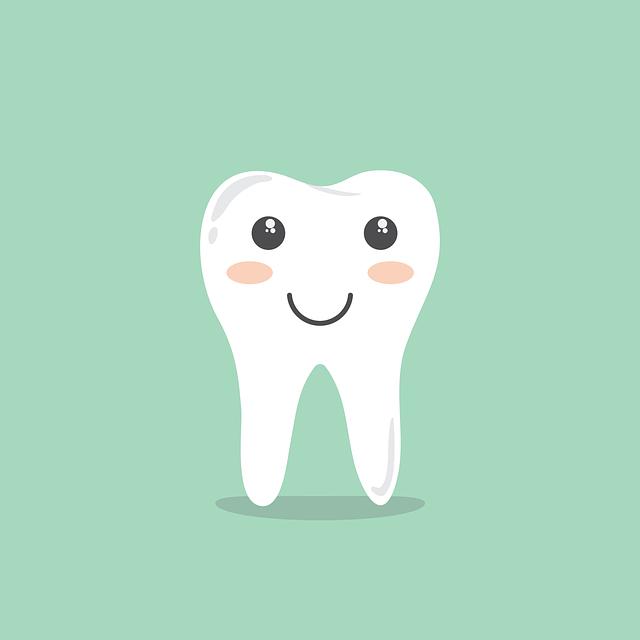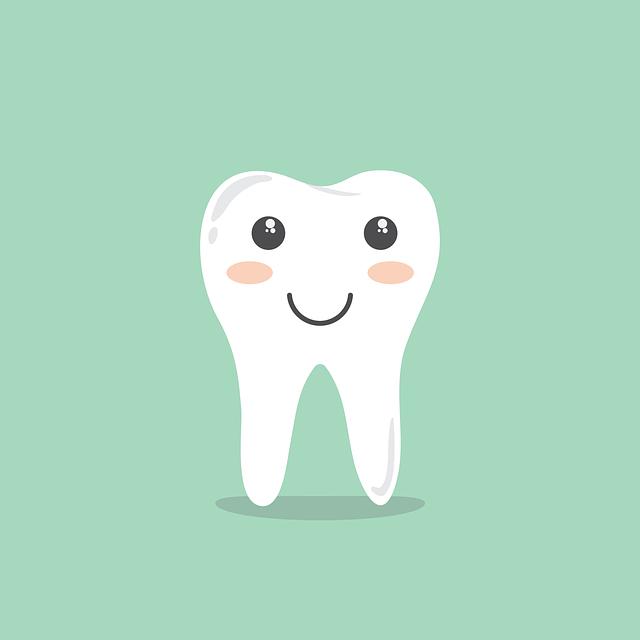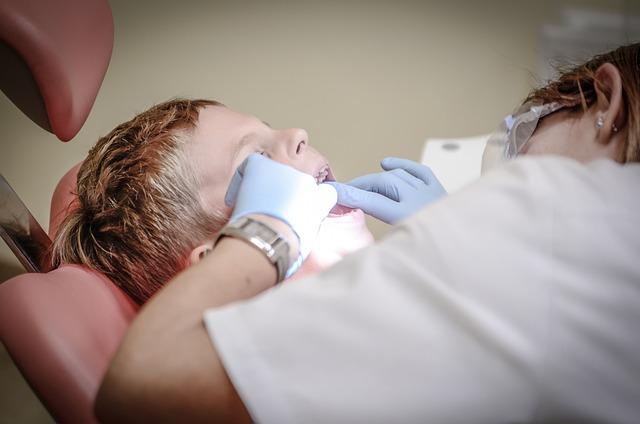Is Gargling Salt Water Good for Teeth: Reality Check
Gargling salt water has been a long-standing home remedy for various oral health issues, from soothing a sore throat to combating bad breath. But when it comes to the well-being of our teeth, does this age-old practice truly hold its ground? It’s time to delve into the reality behind gargling salt water and separate fact from fiction. In this article, we will confidently explore the effects of salt water on dental health, providing a knowledgeable and neutral perspective to help you make informed decisions. So, let’s put this popular remedy under the microscope and uncover the truth about its impact on your pearly whites.
1. The Science Behind Gargling Salt Water: Separating Fact from Fiction
Gargling salt water is a popular home remedy for various throat and mouth ailments, but does it really work? Let’s dive into the science behind this practice and separate fact from fiction.
1. Saltwater’s Mechanism of Action
The primary reason gargling salt water is believed to be effective is due to its osmotic properties. When salt is dissolved in water, it creates a hypertonic solution. This hypertonic solution helps draw out excess fluid from the swollen tissues in the throat, reducing inflammation and providing temporary relief.
Additionally, saltwater gargling can help soothe sore throats by loosening mucus and flushing out irritants or bacteria. The saline solution can also help cleanse wounds or ulcers in the mouth by promoting healing and preventing bacterial growth.
2. Recommended Salt Concentration
For gargling purposes, it is generally recommended to use a solution with a salt concentration of around 0.9%. This concentration is equivalent to the saltiness of tears or seawater. Using too much salt may cause discomfort or irritation in the throat, while using too little salt may dilute the solution and reduce its effectiveness.
To prepare a saltwater gargle, simply dissolve half a teaspoon of salt in eight ounces of warm water. Stir until the salt is fully dissolved, and then use the solution for gargling.
3. Limitations and Precautions
While gargling salt water can provide temporary relief for symptoms such as a sore throat or mouth ulcers, it is important to note that it is not a cure for any underlying conditions. If symptoms persist or worsen, it is advisable to consult a healthcare professional.
Furthermore, it is crucial to gargle salt water safely by not swallowing the solution. Swallowing excessive amounts of saltwater can lead to electrolyte imbalances or other complications. Always spit out the solution after gargling and rinse your mouth with plain water afterward.
2. Debunking the Myth: Does Gargling Salt Water Actually Benefit Teeth?
Gargling salt water has long been believed to have numerous benefits for oral health, including strengthening teeth. However, it’s time to set the record straight and debunk this common myth. While salt water gargles can offer temporary relief for some oral issues, there is no scientific evidence to support the claim that it directly benefits teeth.
Here are the facts:
- Salt water does not strengthen teeth: The mineral content in salt water is not sufficient to strengthen tooth enamel. Tooth enamel is primarily composed of calcium and phosphate, and salt does not provide these essential minerals in significant amounts.
- Salt water can help with inflammation: Gargling salt water can provide relief for gum inflammation or minor mouth sores. The salt acts as an antiseptic, helping to reduce bacteria and soothe the affected area temporarily.
- Proper oral hygiene is key: While salt water gargles may offer temporary relief, they should not replace regular brushing, flossing, and dental check-ups. Maintaining good oral hygiene practices, such as using fluoride toothpaste and avoiding sugary foods, is crucial for maintaining strong and healthy teeth.
In conclusion, while gargling salt water can provide some temporary relief for oral issues, it does not directly benefit teeth by strengthening them. To ensure optimal oral health, it is important to follow a consistent oral hygiene routine and seek professional dental care regularly.

3. Understanding the Effects of Gargling Salt Water on Dental Health
Gargling salt water is a common practice to maintain dental health, but understanding its effects is crucial. Here’s what you need to know:
- Kills bacteria: Salt water has antimicrobial properties that help kill bacteria in the mouth, reducing the risk of infections and gum disease.
- Reduces inflammation: Gargling salt water can alleviate inflammation in the gums and throat, providing relief from discomfort caused by conditions like gingivitis or a sore throat.
- Helps with healing: Salt water promotes the healing of wounds and sores in the mouth, such as canker sores or post-dental procedure discomfort.
- Maintains oral hygiene: Regularly gargling salt water can complement your oral hygiene routine by removing food particles and debris, freshening breath, and preventing bad breath.
While gargling salt water can offer these benefits, it’s important to note that it should not replace regular brushing, flossing, and dental check-ups. Consulting with a dental professional is always recommended for personalized advice on maintaining your dental health.

4. Exploring the Potential Benefits and Drawbacks of Salt Water Rinse for Teeth
When it comes to oral hygiene, many people are constantly seeking natural remedies to maintain a healthy smile. One popular option that has gained attention is salt water rinses. Let’s dive into the potential benefits and drawbacks associated with this practice:
Potential Benefits:
- Reduced inflammation: Salt water rinses can help reduce gum inflammation and alleviate discomfort caused by conditions like gingivitis. The natural antimicrobial properties of salt may also aid in fighting bacteria in the mouth.
- Improved wound healing: Salt water rinses have been known to promote faster healing of oral wounds, such as canker sores or post-dental procedure irritation. The solution’s gentle cleansing action may help remove debris and promote tissue repair.
- Cost-effective and easily accessible: Salt water rinses are inexpensive and can be easily prepared at home, making them a convenient option for those who prefer natural remedies.
Potential Drawbacks:
- High salt concentration: Excessive use of salt water rinses may lead to dehydration or irritation of oral tissues. It is important to use the correct salt-to-water ratio and not exceed the recommended frequency of rinsing.
- Not a substitute for regular oral hygiene practices: While salt water rinses can provide temporary relief and some oral health benefits, they should not replace brushing, flossing, and regular visits to the dentist.
- Individual sensitivities: Some individuals may experience sensitivity or allergic reactions to salt water rinses. It is advisable to consult with a dental professional before incorporating this practice into your oral care routine.
Overall, salt water rinses can be a valuable addition to your oral care routine when used correctly and in moderation. However, it is essential to consult with a dental professional to ensure it aligns with your specific dental needs and to address any concerns you may have.

5. A Closer Look at the Claims: Can Gargling Salt Water Truly Improve Oral Hygiene?
Gargling salt water is often recommended as a natural remedy to improve oral hygiene, but does it really work? Let’s take a closer look at the claims surrounding this practice:
1. Reduces bacteria and inflammation: One of the main reasons why gargling salt water is believed to improve oral hygiene is its ability to reduce bacteria and inflammation in the mouth. Salt acts as a natural antibacterial agent, helping to kill harmful bacteria that can cause plaque and gum disease. Additionally, it can soothe inflammation and promote healing of oral tissues.
2. Relieves sore throat and mouth ulcers: Gargling salt water is also known to provide temporary relief from a sore throat or mouth ulcers. The saltwater solution can help reduce pain and inflammation, providing a soothing effect on irritated tissues. However, it’s important to note that this relief is temporary and may not address the underlying cause of the sore throat or mouth ulcers.
3. Enhances oral cleanliness: Regularly gargling salt water can contribute to overall oral cleanliness by loosening debris and food particles that may be stuck between teeth or in hard-to-reach areas. It can also help freshen breath by reducing the presence of bacteria responsible for bad breath. However, it should not replace regular brushing and flossing, which are essential for maintaining optimal oral hygiene.
6. The Role of Salt Water Rinse in Dental Care: Expert Insights
The role of salt water rinse in dental care is often underestimated, but it can provide numerous benefits for oral health. Here are some expert insights:
- Reduces inflammation: Salt water rinse has natural anti-inflammatory properties that can help reduce gum inflammation and swelling. It can soothe irritated tissues and provide relief from discomfort.
- Promotes healing: Salt water rinse can aid in the healing process of oral wounds, such as mouth ulcers or post-surgical sites. It helps keep the area clean, prevents infection, and speeds up the healing time.
- Kills bacteria: Salt water rinse has antimicrobial properties that can kill bacteria and prevent the growth of harmful microorganisms in the mouth. This can help reduce the risk of infections and maintain oral hygiene.
- Improves bad breath: By reducing bacteria and cleansing the mouth, salt water rinse can help freshen breath and combat unpleasant odors.
It’s important to note that salt water rinse should not replace regular brushing and flossing, but rather be used as a complementary oral hygiene practice. To prepare a salt water rinse, simply dissolve half a teaspoon of salt in a glass of warm water, swish it around in your mouth for 30 seconds, and then spit it out. Consult with your dentist to determine if salt water rinse is suitable for your specific dental needs.
7. Scientific Evidence: Evaluating the Impact of Gargling Salt Water on Tooth Health
Scientific evidence plays a crucial role in understanding the impact of gargling salt water on tooth health. Numerous studies have been conducted to evaluate the effectiveness of this age-old remedy in promoting oral hygiene. Here are some key findings:
- Reduces bacterial growth: Salt water gargling has been shown to reduce the growth of harmful bacteria in the oral cavity. The high salt concentration creates an osmotic effect that dehydrates and inhibits the growth of bacteria, including those responsible for tooth decay and gum disease.
- Relieves inflammation: Gargling salt water can help alleviate inflammation and swelling in the gums. The salt acts as a natural disinfectant, reducing the severity of gum infections and aiding in the healing process.
- Enhances wound healing: Salt water has mild antiseptic properties that can promote faster wound healing, particularly after dental procedures or minor injuries to the oral tissues. It can also provide temporary relief from toothaches and sore throats.
While gargling salt water can provide certain benefits for tooth health, it is important to note that it is not a substitute for regular dental care. Maintaining a proper oral hygiene routine, including brushing, flossing, and regular dental check-ups, remains essential for optimal dental health. Additionally, individuals with specific dental conditions or allergies should consult their dentist before incorporating salt water gargling into their routine.
8. Is Gargling Salt Water an Effective Remedy for Toothache or Gum Inflammation?
Gargling salt water is indeed a simple and effective remedy for both toothache and gum inflammation. The natural antiseptic properties of salt help to reduce bacteria and inflammation, providing temporary relief in the affected area. It is important to note that while this remedy can alleviate symptoms, it does not treat the underlying cause of the toothache or gum inflammation.
Here are a few key benefits of gargling salt water:
- Pain relief: Salt water can help soothe the pain associated with toothache or gum inflammation. The warm water and salt create a gentle, soothing effect that can provide temporary relief.
- Reduced swelling: The salt in the water can help reduce swelling in the gums, making it an effective remedy for gum inflammation. This can provide some relief and help improve overall oral health.
- Antibacterial properties: Salt has natural antibacterial properties, which can help reduce the number of bacteria in the mouth. This can contribute to a healthier oral environment and reduce the risk of further infection.
While gargling salt water can be a helpful home remedy, it is important to remember that it is not a substitute for professional dental care. If you are experiencing persistent toothache or gum inflammation, it is recommended to consult a dentist for a proper diagnosis and appropriate treatment.
9. Pros and Cons of Gargling Salt Water: What You Should Know for Optimal Dental Care
Gargling salt water is a commonly recommended practice for maintaining optimal dental care. It can provide several benefits for oral health, but it also has a few drawbacks that should be considered. Understanding the pros and cons of gargling salt water can help you make an informed decision about whether to incorporate this practice into your dental care routine.
Pros of Gargling Salt Water:
- Reduces inflammation: Salt water has natural anti-inflammatory properties that can help reduce swelling and inflammation in the gums and throat. Gargling salt water can provide relief from discomfort caused by gum infections, sore throat, or canker sores.
- Kills bacteria: Salt water has antimicrobial properties, which can help kill bacteria in the mouth. Gargling salt water can be especially beneficial for those with gum infections or minor wounds in the mouth, as it can help prevent the growth of harmful bacteria.
- Promotes healing: Salt water can aid in the healing process for oral injuries or surgeries. It can help cleanse the area, reduce the risk of infection, and promote faster healing.
Cons of Gargling Salt Water:
- Excessive use can lead to dryness: Gargling salt water too frequently or for prolonged periods may cause dryness in the mouth. This can be uncomfortable and potentially lead to other oral health issues, such as bad breath or increased risk of cavities.
- Not a substitute for proper dental care: While gargling salt water can provide temporary relief and certain oral health benefits, it should never replace regular brushing, flossing, and routine dental visits. It is essential to maintain a comprehensive dental care routine for optimal oral health.
Consulting with your dentist or healthcare professional is always recommended before incorporating any new practice into your dental care routine. They can provide personalized advice based on your specific oral health needs and guide you on the appropriate frequency and duration for gargling salt water.
10. Salt Water vs. Traditional Mouthwash: Which is More Beneficial for Teeth?
When it comes to maintaining good oral hygiene, choosing the right mouthwash can make all the difference. While traditional mouthwash has been a popular choice for many years, salt water mouthwash is gaining attention for its potential benefits. Let’s explore the advantages of both options, so you can make an informed decision on which is more beneficial for your teeth.
Salt water mouthwash:
- Has natural antiseptic properties that can help kill bacteria in the mouth.
- Can reduce inflammation and soothe sore gums.
- Can help promote healing of minor mouth sores, such as canker sores.
- Is cost-effective and easy to prepare at home.
Traditional mouthwash:
- Contains ingredients like fluoride, which can help strengthen tooth enamel and prevent tooth decay.
- Often has a refreshing taste and leaves a pleasant aftertaste.
- May contain additional ingredients such as antibacterial agents to further fight against plaque and gingivitis.
- Can provide a minty fresh breath sensation.
Ultimately, the choice between salt water and traditional mouthwash depends on your specific oral health needs and personal preferences. It may be beneficial to consult with your dentist to determine which option is best suited for you. Remember, regular brushing and flossing remain the foundation of a healthy oral care routine.
Frequently Asked Questions
Q: Is gargling salt water good for teeth?
A: Gargling salt water can be beneficial for oral health, but it’s important to understand its limitations and potential benefits.
Q: What are the advantages of gargling salt water?
A: Gargling salt water can help maintain good oral hygiene by reducing bacteria in the mouth. The saline solution created by dissolving salt in water creates an environment where certain bacteria find it hard to survive. This can lead to a fresher breath and potentially lower the risk of dental issues.
Q: Can gargling salt water whiten teeth?
A: Unfortunately, gargling salt water alone is not an effective method for whitening teeth. While it may help remove some surface stains, it cannot penetrate the enamel to provide significant whitening effects.
Q: How often should one gargle salt water for oral health?
A: Gargling salt water can be done as part of a regular oral hygiene routine. However, it should not replace brushing and flossing, which are crucial for maintaining oral health. Gargling salt water once or twice a day can be beneficial, but it’s best to consult with a dentist for personalized recommendations.
Q: Are there any risks associated with gargling salt water?
A: Gargling salt water is generally safe, but excessive use may cause temporary side effects such as dry mouth or increased sensitivity. It’s important to use the right concentration of salt and not to swallow the solution.
Q: Can gargling salt water cure dental problems?
A: Gargling salt water can provide temporary relief for certain dental issues like sore throat, mouth ulcers, or gum inflammation. However, it is not a cure for underlying dental problems. Professional dental advice should always be sought for proper diagnosis and treatment.
Q: Should everyone gargle salt water for oral health?
A: Gargling salt water can be beneficial for many individuals, but it may not be suitable for everyone. People with certain medical conditions, such as high blood pressure or kidney problems, should consult with their healthcare provider or dentist before incorporating salt water gargling into their routine.
Q: Is there an alternative to salt water gargling?
A: Yes, there are several alternatives to gargling salt water for maintaining oral health. Using mouthwashes that contain antibacterial properties, brushing with fluoride toothpaste, and flossing regularly are effective ways to keep your teeth and gums healthy.
Q: Can gargling salt water replace regular dental check-ups?
A: No, gargling salt water should not replace regular dental check-ups. While it can contribute to oral hygiene, it cannot replace professional dental cleanings or comprehensive examinations by a dentist. Regular dental visits are crucial for detecting and addressing any potential dental problems early on.
Q: In summary, is gargling salt water good for teeth?
A: Gargling salt water can be a helpful addition to your oral hygiene routine, as it can reduce bacteria in the mouth and provide temporary relief for certain dental issues. However, it is not a substitute for proper dental care and should be used in conjunction with regular brushing, flossing, and professional dental check-ups.
Final Thoughts
In conclusion, it is important to separate fact from fiction when it comes to the age-old practice of gargling salt water for dental health. While it may provide temporary relief for certain oral conditions, the idea that it is a miraculous cure-all for teeth is simply not supported by scientific evidence.
Key Takeaways:
1. Gargling salt water can help alleviate symptoms of certain oral conditions such as sore throat, gum inflammation, and mouth ulcers.
2. Salt water does not possess any magical powers to strengthen or whiten teeth.
3. Maintaining a proper oral hygiene routine, including regular brushing, flossing, and dental visits, is crucial for maintaining optimal dental health.
4. Consult with your dentist or healthcare provider for personalized advice on addressing specific dental concerns.
5. Beware of misinformation and always rely on evidence-based research when making decisions about your oral health.
Remember, while gargling salt water may have some benefits, it is essential to approach dental care with a well-rounded approach that includes professional guidance and consistent oral hygiene practices.






